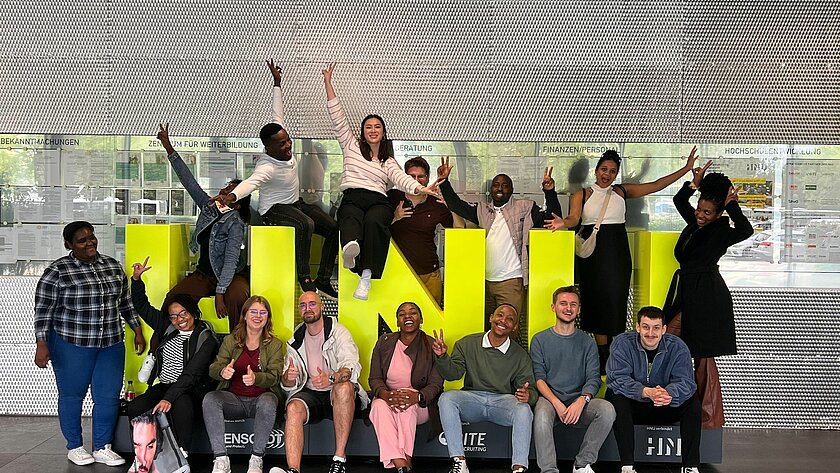In four international teams of four to five students each from HNU, UWC and UMI, the participants developed solutions for current challenges facing the Ugandan fishing industry - including inefficiencies and quality problems in the transportation and processing of fishery products. The idea for this use case was developed during a trainer workshop that HNU held as part of the "Digital Logistic Services and Entrepreneurship" project with the UWC and UMI in Uganda.
Benefit for all teams: hackathon strengthens both professional and intercultural skills
"An international hackathon is an ideal format for such issues and enables all participants to gain very valuable experience," said Prof. Dr.-Ing. Dany Meyer, who led the project together with the HNU team consisting of Prof. Dr. Jürgen Grinninger and Prof. Dr. Jörg Vogt as well as South African colleagues Prof. Dr. James Njenga and Ruchen Wyngaard. "It promotes both technical and intercultural skills through the collaboration of students from different backgrounds on practical applications." This is also reflected in the feedback from the students, who found the diversity of perspectives, the joint team effort and the communication within the group particularly enriching.
The results, which were presented to a jury at the end of a labor-intensive hackathon week, show how productive this collaboration actually turned out to be: The teams presented innovative concepts for monitoring cold chains, shipment tracking and predictive maintenance, focusing on the use of the Internet of Things (IoT) and machine learning technologies. All of the proposed solutions revealed great potential for increasing efficiency and improving sustainability in the Ugandan fishing industry.
Three countries, two continents, one goal: sustainable economic development
The hackathon is part of the intensive cooperation between HNU, UWC and UMI, which promotes sustainable development and economic growth in African countries: In the DLSE project, the existing master's degree program "Big Data in Logistics" at the UWC - also a cooperation project with the HNU - will be expanded to include an entrepreneurial dimension and transferred to the UMI. The HNU has already had a partnership with the UWC for several years; a cooperation agreement was recently signed with the UMI.
The hackathon was supported and financed by the German Federal Ministry for Economic Cooperation and Development (BMZ) and the German Academic Exchange Service (DAAD) as part of the SDG Partnerships (Sustainable Development Goals) program. Among other things, the program aims to strengthen university partnerships and to develop and test innovative international forms of teaching and learning. One of the core objectives is to provide students with intercultural experiences and international contacts. "Without this funding, such an ambitious project with students from two continents would hardly have been possible," emphasized Prof. Dr.-Ing. Dany Meyer. "The program has created real added value for international networking."
More about DLSE
https://www.hnu.de/forschung/projekte/projekt/digital-logistic-services-and-entrepreneurship-dlse
Contact
Prof. Dr.-Ing. Dany Meyer







